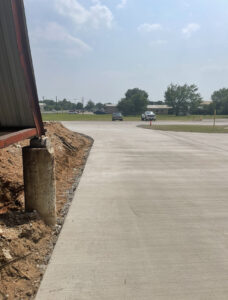 Like the roofing, plumbing, and other trades, the masonry industry relies on an assortment of terms that can be confusing to many people. For example, to people who are not in the masonry industry, concrete, cement, and mortar may seem to describe identical products, but they are three very different products that are used for very different purposes.
Like the roofing, plumbing, and other trades, the masonry industry relies on an assortment of terms that can be confusing to many people. For example, to people who are not in the masonry industry, concrete, cement, and mortar may seem to describe identical products, but they are three very different products that are used for very different purposes.
Table of Contents
ToggleWhat Is Cement?
Cement is a mixture of silica sand, crushed limestone, clay, shells, or similar ingredients to which water is added; iron ore and other materials may also be incorporated. Cement was a popular building material for many centuries, but its popularity waned by the early 1900s as it was slow to set and was comparatively short-lived when placed under loads. Furthermore, since cement does not contain large, rough aggregates, it has a smooth texture that can be either desirable or undesirable. Today, cement construction is primarily restricted to statuary, decorative columns, indoor fountains, and similar features. However, cement is immensely important as an ingredient in mortar and Dallas concrete.
What Is Concrete?
Concrete companies produce their product by mixing together cement, sand, water, and gravel, rocks, or another aggregate. Concrete contractors use the product to construct sidewalks, bridges, parking lots, highways, slab foundations, floors, driveways, patios, dams, and many other features that have become quite commonplace in the modern world. It is an extremely durable material that possesses exceptional load-bearing properties, so you can expect to see it used for dumpster pads, truck fueling stations, and other pavements that will need to support a high number of heavyweight vehicles.
What Is Mortar?
Mortar is typically a mixture of water, sand, cement, and lime; without the lime, the product is usually labeled as grout, which has more water than true mortar. Mortar itself is not a building material, but it is used as a glue to hold other building materials together, notably bricks and stones.
What Methods Are Used When Working With Concrete, Cement, and Mortar?
In a concrete installation, the contractor will virtually always build forms to hold the slurry that mix trucks will deliver to the site. If additional strength is needed, the concrete installer may place rebar or reinforcing mesh before placing the slurry. Mortar is typically applied with a variety of trowels for placing, spreading, packing, and tooling. On the rare occasions that cement is used by itself, the normal process is to pour the cement mix into molds to create a three-dimensional product that can be painted, waterproofed, or otherwise enhanced.
If You Have Questions, Trust HI-TEK Paving for Expert Answers
Hi-Tek Paving serves the Dallas-Fort Worth metropolitan area, including the cities of Forney, Arlington, Garland, Rockwall, Grand Prairie, Plano, Irving, and Mesquite. We are a well-respected company offering a wide range of paving services, including concrete installation, asphalt paving, concrete repair, asphalt overlays, asphalt repair, parking lot striping, asphalt crack repair, parking lot maintenance, and asphalt sealcoating. We have built our exemplary reputation by providing exceptional results and superior customer service on every project. We offer free quotes, so submit your request by completing the online form. If you would rather call us, we can be reached at 214-908-9641.
